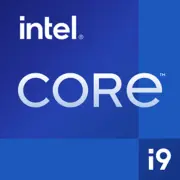Intel Core i9-14900K

Intel Core i9-14900K: A Comprehensive Review of the Flagship Processor of 2025
Introduction
The Intel Core i9-14900K processor, released at the end of 2023, remains a relevant choice for enthusiasts and professionals even in 2025. It is the latest member of the Raptor Lake Refresh lineup, combining record clock speeds, a hybrid architecture, and support for modern technologies. Let’s explore who this CPU is suitable for and what to pay attention to when building a PC based on it.
1. Key Specifications: Architecture and Performance
Raptor Lake Refresh Hybrid Architecture
The processor is built on a hybrid architecture, combining 8 performance cores (P-cores) and 16 efficiency cores (E-cores), resulting in a total of 24 cores and 32 threads. P-cores operate at a base frequency of 3.2 GHz with a turbo boost of up to 6 GHz — one of the highest figures in the market. E-cores (base 2.4 GHz, turbo 4.4 GHz) are optimized for multi-threaded tasks.
Intel 7 Process and Cache Memory
The Intel 7 process (10 nm Enhanced SuperFin) provides a balance between performance and power efficiency. The L3 cache size has been increased to 36 MB, which speeds up data processing in games and professional applications.
Performance in Benchmarks
- Geekbench 6: 3213 (single-threaded) / 22487 (multi-threaded). These results make the i9-14900K a leader in single-threaded tasks, such as gaming and real-time rendering.
- Cinebench R23: Approximately 2200 points (single-threaded) and 38000 (multi-threaded).
Key Features:
- Support for PCIe 5.0 for graphics cards and NVMe drives.
- Thermal Velocity Boost and Adaptive Boost technologies for automatic overclocking.
- No integrated graphics — a discrete graphics card is required.
2. Compatible Motherboards
LGA 1700 Socket and Chipsets
The processor uses the LGA 1700 socket, compatible with motherboards featuring the following chipsets:
- Z790: For overclocking (e.g., ASUS ROG Maximus Z790 Hero, $450).
- B760: Budget option with DDR5 support (MSI MAG B760 Tomahawk, $180).
- H770: A balance of price and functionality (Gigabyte H770 Aorus Elite, $220).
Selection Tips:
- Ensure the motherboard supports the 14th generation Intel (a BIOS update may be required).
- For overclocking, choose models with VRM 16+1 phases and cooling radiators.
- Check for PCIe 5.0 x16 and M.2 connectors with heat sinks.
3. Supported Memory: DDR4 vs DDR5
The i9-14900K works with DDR4-3200 and DDR5-5600. By 2025, DDR5 has become more affordable, but the choice depends on your budget:
- DDR5: Recommended for maximizing performance (e.g., Kingston Fury DDR5-6000 32 GB, $150).
- DDR4: Savings of up to 30% without significant FPS loss in games (Corsair Vengeance LPX DDR4-3600 32 GB, $90).
Important: Motherboards on the Z790 chipset support both memory types, but not simultaneously — check specifications.
4. Power Supply: Power Calculation
With a TDP of 125 W, the actual power consumption under load can reach 250 W (with overclocking). Recommendations:
- Without overclocking: A power supply of 750 W (e.g., Corsair RM750x, $120).
- With overclocking and a premium graphics card: 850–1000 W (Seasonic PRIME TX-1000, $250).
Tips:
- Choose units with an 80 Plus Gold/Platinum certification.
- Use PCIe 5.0 12VHPWR cables for modern GPUs.
5. Pros and Cons
Pros:
- Record clock speed of 6 GHz for gaming and single-threaded tasks.
- High multi-threaded performance (rendering, encoding).
- Compatibility with both DDR4 and DDR5.
Cons:
- High heat output — requires liquid cooling or powerful air coolers.
- Price: $600–650 (as of March 2025).
- No integrated graphics.
6. Use Cases
- Gaming: Maximum FPS at 4K (Cyberpunk 2077 — 110+ FPS with RTX 4090).
- Work Tasks: 3D modeling (Blender), video editing (Premiere Pro), code compilation.
- Artificial Intelligence: Training neural networks on a local PC.
Practical Example: When rendering 8K video in DaVinci Resolve, the i9-14900K completes tasks 15% faster than the Ryzen 9 7950X.
7. Comparison with Competitors
- AMD Ryzen 9 7950X3D ($550): Better in gaming due to 3D V-Cache but falls short in multi-threaded tasks.
- Apple M3 Max ($2200): Energy efficiency and performance in work applications, but limited compatibility with Windows.
- Intel Core i9-14900KS ($750): Slight boost in clock speed (6.2 GHz) for a higher price.
Conclusion: The i9-14900K is optimal for hybrid scenarios (gaming + work).
8. Assembly Tips
- Cooling: 360 mm liquid cooling (ARCTIC Liquid Freezer II 360, $130) or top-tier air cooler (Noctua NH-D15, $110).
- Case: Good ventilation (Lian Li Lancool III, $150).
- Storage: NVMe PCIe 5.0 (Samsung 990 Pro 2 TB, $250).
- Graphics Card: Minimum RTX 4070 Ti or RX 7900 XT.
9. Final Conclusion
The Intel Core i9-14900K is suitable for:
- Gamers looking to maximize 4K/144 Hz performance.
- Professionals working with demanding applications.
- Enthusiasts experimenting with overclocking.
Why choose it? It is the last Intel processor with DDR4 support, offering record clock speeds and versatility. Despite competition from AMD and Apple, it remains an attractive choice for those unwilling to compromise.
Prices and specifications are current as of March 2025. When building, consider the potential release of new models, but for current tasks, the i9-14900K still stands unrivaled.
Basic
CPU Specifications
Memory Specifications
GPU Specifications
Benchmarks
Compared to Other CPU
Share in social media
Or Link To Us
<a href="https://cputronic.com/en/cpu/intel-core-i9-14900k" target="_blank">Intel Core i9-14900K</a>




